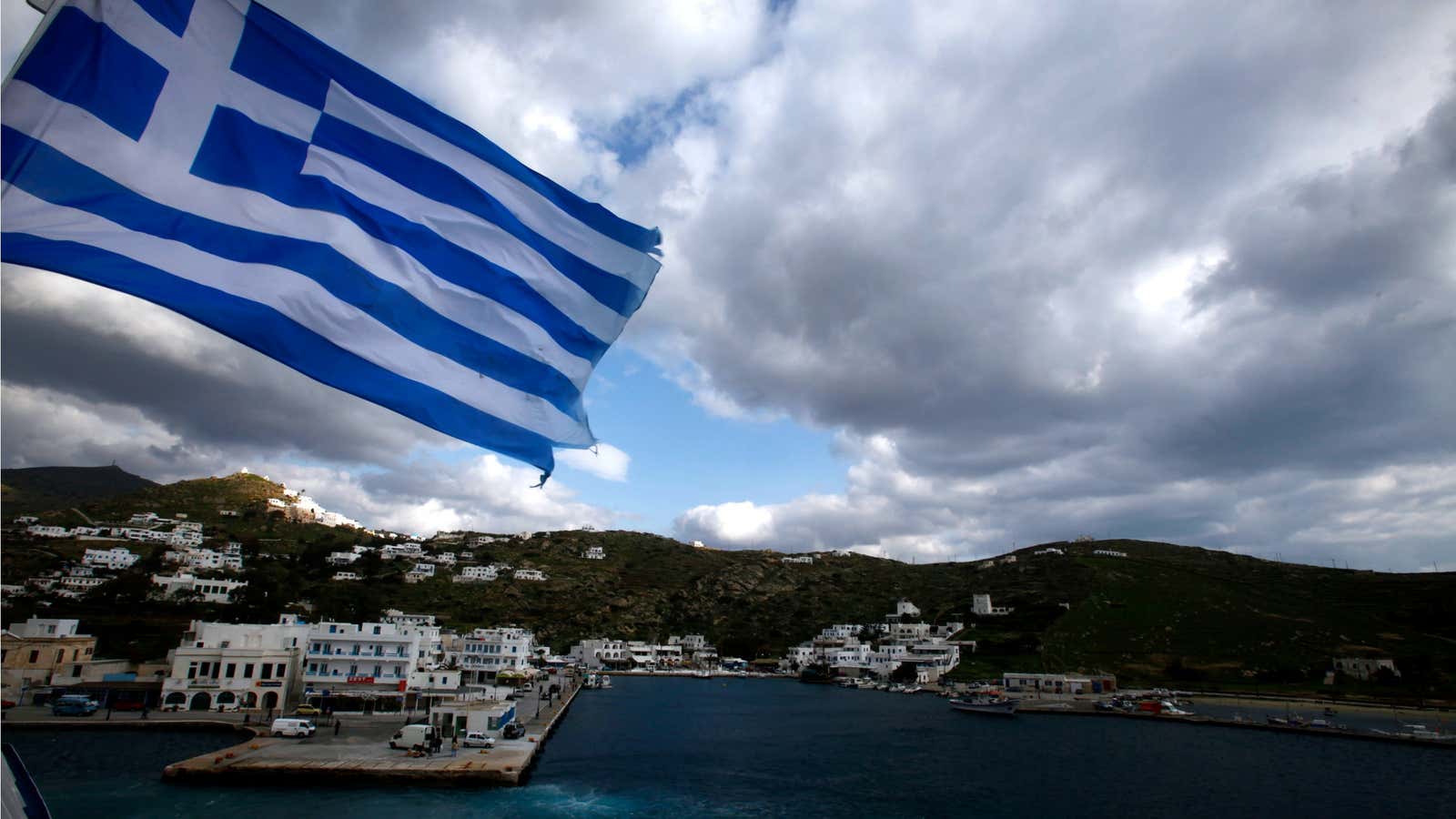Despite several high-profile sales of Greek islands this year at bargain-basement prices, don’t whip out your checkbook just yet. It turns out that buying an island from a country languishing in its sixth year of recession may not, in fact, be the most practical idea.
Three years ago, German lawmakers infuriated Greeks with the suggestion that Greece sell off its famously idyllic islands as a condition of its European Union bailout. Since then, some private island-owners have taken the Germans’ advice. The Emir of Qatar bought six islands in the Ionian Sea for the rockbottom price of €8.5 million ($11.5 million). And the sole heir of Aristotle Onassis sold Skorpios—the legendary private isle where the shipping tycoon married Jacqueline Kennedy—to a Russian billionaire.
Owning one of the thousands of islands that dot the Ionian and Aegean seas, with their Homeric landscapes and aura of extreme wealth, may be the ultimate status symbol (indeed, some have suggested that selling islands could provide Greece’s troubled economy with a much-needed infusion of cash). But even as the country’s coalition government scrambles to fill a €2 billion ($2.7 billion) hole in the 2014 budget, Greece’s legendarily Byzantine bureaucracy may still be deterring would-be purchasers.
“Greece is not that attractive anymore,” says Chris Krolow, CEO of the website Private Islands Online. The site lists hundreds of islands for sale all over the world, from $40,000 for a tiny isle in Maine up to Greece’s Patroklos, the most expensive island listed, with an asking price of $200 million.
On the site, volume is up—a dozen more Greek islands are on offer than there were in 2010—but sales have been slow. While data on Greek island sales are elusive, the country’s overall housing market has been depressed, according to a Bank of Greece report released in May (pdf), which noted that the “Greek real estate market continues to be characterised by excess supply and falling purchase and rental values.”
Those who invest in islands for development don’t have the patience to deal with the complicated Greek system, and would rather look in cheaper regions with fewer regulations, says Krolow. “There is too much work involved just purchasing the island,” he says. “Sometimes you need 20, 30 different permits to do anything. There is a lot of red tape, a lot of bureaucracy.”
While still mostly dominated by Americans and the British, the elite market for private islands has seen an influx of buyers from Russia, Asia, and the Middle East in recent years. For foreign investors, Greece is not convenient, Krolow said. The islands are relatively big and expensive, and they come with strings attached. These new investors, particularly the Chinese, “like turnkey,” says Krolow. “They don’t like the idea of having to wait six months to get a permit.”
Greek islands may be the stuff of epic, but places such as the Bahamas, where minimal regulations favor fast development, may be more alluring for today’s high-sea adventurers.
